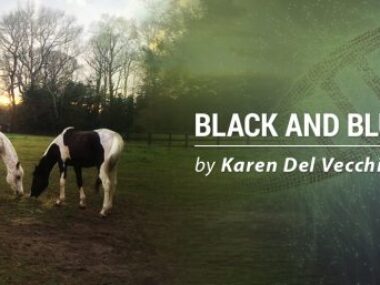Acknowledging the setbacks in my EDS healing journey is hard work
My recovery is helping me revisit lessons and embrace 'realistic positivity'
Written by |

Recovery is such an up-and-down experience.
I want to move forward, make progress, and get on with life, but that’s not how recovery works, especially for those of us with Ehlers-Danlos syndrome (EDS). While my overall trajectory is upward, I’m having a tough time with the setbacks and not-so-great days. Patience is not my strong suit. Ask anyone who knows me. While I’ve certainly learned to have patience as I’ve gotten older, I definitely wouldn’t put it on my list of strengths. I like to have a plan, act on it, and move forward, but right now that’s not really an option.
I fractured my rib (and injured my diaphragm) in mid-September, but it didn’t fully break for another week and a half, so that reset my recovery clock. I’m at about eight weeks right now, and for a complete bone break like mine, healing would take at least three months.
Since you can’t immobilize a rib in place with a cast, it takes a lot longer to heal than most broken bones. Every breath and movement causes tiny movements of the bone that interrupt healing, so it’s constantly two steps forward, one step back.
Over the hump, embracing ‘realistic positivity’
Luckily, as far as the pain goes, I feel like I’ve made it over the hump. The sharp pain in my ribs has been replaced by more of a dull ache. And while my diaphragm is definitely still injured and irritated, I’m happy to not feel nauseous all the time now. I know that with my EDS, the damage to my muscle and connective tissue will take a lot longer to heal than my bone, but I’m trying not to think about that.
Still, now that I’m feeling better, it’s immensely frustrating to not be able to do what I normally do. I’m ready to skip over what’s left of my healing process and just be back to normal. It irritates me to see things that need to be done around the farm and not be able to just take care of them myself, as I usually do. I have amazing help that I’m grateful for, so the farm is in great shape, but I learned a long time ago that ignoring feelings of frustration isn’t useful. With EDS those feelings come up regularly.
Instead of pretending that the negatives — a form of toxic positivity — I’ve found it’s important for me to utilize realistic positivity, which involves recognizing the pitfalls, acknowledging and working through them, and then choosing to focus on the positive. And that’s what I’m trying to do right now.
Note: Ehlers-Danlos News is strictly a news and information website about the disease. It does not provide medical advice, diagnosis, or treatment. This content is not intended to be a substitute for professional medical advice, diagnosis, or treatment. Always seek the advice of your physician or another qualified health provider with any questions you may have regarding a medical condition. Never disregard professional medical advice or delay in seeking it because of something you have read on this website. The opinions expressed in this column are not those of Ehlers-Danlos News or its parent company, Bionews, and are intended to spark discussion about issues pertaining to Ehlers-Danlos.







Nicole
Thank you for sharing. I was just diagnosed heds. I broke my rib this year too. It’s been two weeks since I hit my diagnosis and I find my self consumed with remembering every injury I endured. Frozen shoulder was one of my meanest. I am 54. I have years and years of being gaslight and treated as a mental case. I look forward to finding peace. Have you come to peace with your diagnosis?
Karen Del Vecchio
Hi, Nicole. Thanks so much for taking the time to comment! For me, I had people trying to find a diagnosis for my symptoms from the time I was about 10 years old until my final diagnosis at age 22. In that sense, it was actually a relief to know what was finally "wrong," and while there wasn't a treatment for it, at least I could better understand my body and experience in athletics as a kid. I can also tell you every injury I've ever had (and my shoulder injury was definitely one of my worst, too!). EDS can be so difficult sometimes because we look "normal" yet have so much going on under the surface. There are absolutely some days that are harder than others, but I try my best to use my diagnosis as a tool for understanding my injuries and compensations as best I can and informing how I respond to them. I hope you find the columns and articles on the website helpful, and remember that there's a whole community of people who have EDS and understand!
susan cutuli
Ya thanks for that I guess . But the real reality is we will never be better and it only gets worse. I’m trying to play when I can but after 19 years of trying to be well I know now I never will and even though I’ve had numerous therapist because I do t look sick they always dismiss as healed after awhile.
As a super active athlete- who was probably good at sports because of my hyper mobility I have a lot to be grateful for. But it’s weird the lack
Of understanding I have in friends and family. I enjoy reading your post this one was our reality.